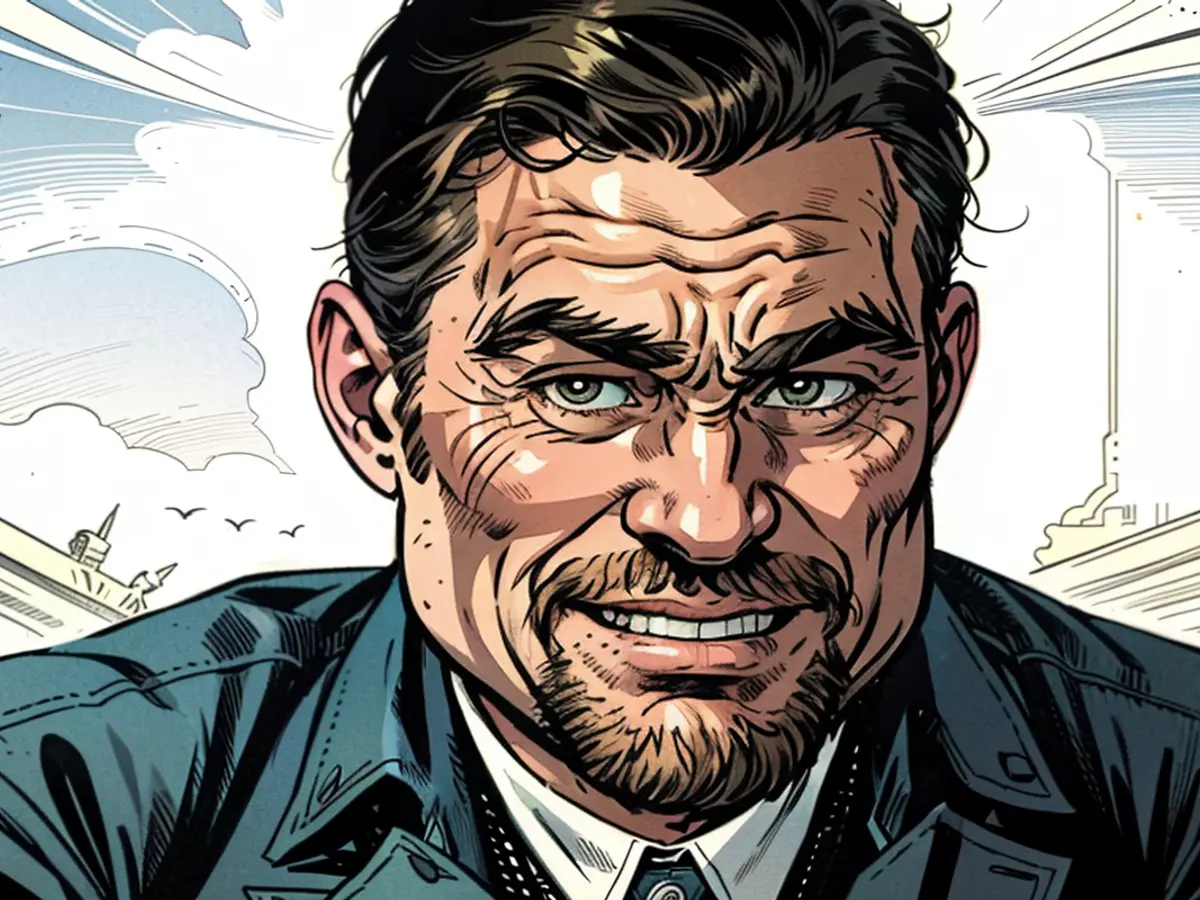Today, Hemingway would be less socially acceptable
Ernest Hemingway was known as a literary giant and portrayed himself as a hedonist. In 1954, he received the Nobel Prize for works that have since fallen out of fashion. The life of the American born over 125 years ago ended tragically.
Modern society would have likely worked him over if Ernest Hemingway were still alive: The American embodied the masculine image of a true adventurer and womanizer. The writer was a big game hunter, war veteran, reporter, and deep-sea angler - and someone who couldn't resist bars or women.
On July 21, the Nobel laureate would have turned 125 years old. Sixty years ago, he took his own life. His life as a hedonist was accompanied by depressions and self-doubts. Suicide was not an isolated incident in Hemingway's family.
At the beginning of his life, young Ernest Miller Hemingway lacked nothing materially. Born in 1899 in a suburb of Chicago, the son of a doctor grew up in a secure and well-educated environment. However, to the disappointment of his parents, the young man squandered his privileges and decided to become a reporter in Kansas and an ambulance driver in the First World War.
Fascination for War
After a severe wounding in Italy and a disappointed love, he returned and continued to write. At first, he wrote stories for newspapers, then reports, and eventually novels. With "Fiesta," Hemingway achieved a breakthrough in 1926. The book is best known for its depiction of the bullfighting in Pamplona, but it primarily revolves around the lives of Parisian artists, which unfolded in the cafes.
A main character in Kansas was a journalist, became an ambulance driver in Italy, suffered severe wounds there - and became impotent. The parallels to Hemingway's own life are obvious, but impotent? That wasn't Hemingway, at least not permanently, as three children were born from his first two marriages. Fascinated was the writer by the all-consuming nature of war. In the Spanish Civil War, he was a war correspondent, crossed the English Channel with American troops during D-Day in June 1944, and experienced battles in French Normandy.
The Encyclopaedia Britannica writes in its article about Hemingway: "He impressed, despite being a frontline journalist, the professional soldiers not only as a brave man in combat but also as a genuine expert in military matters, guerrilla activities, and information gathering." Among his friends, however, the writer was also known as mentally brittle. As a driven man who sought relief in alcohol, but only made things worse.
Literarily out of fashion
The "New York Times" called him the "most important writer since the death of William Shakespeare" in 1950. Four years later, he received the Literature Nobel Prize - long overdue, according to his admirers and even his own. Today, he is viewed more critically, not fitting quite right into the 21st century. His works, like those of other broad-shouldered writers such as Jack London, Irwin Shaw, and Norman Mailer, among others, have fallen out of fashion due to their portrayal of gender roles.
When Hemingway was 29 years old, his father took his own life. This burden stayed with him throughout his life, along with depressions, pressure to succeed, and alcohol. At that time, they treated it with electroshocks. Added to this was a paranoia: Hemingway had befriended the Cuban revolutionary leader Fidel Castro, but always ignored his atrocities. In his later years, he was convinced that the FBI was monitoring every step he took.
On July 2, 1961, Hemingway took his life with his favorite shotgun. "An accident," the family explained initially. It wasn't until years later that Hemingway's fourth wife, Mary, admitted that it was a suicide. This came as a surprise to no one. It was also not an isolated incident in Hemingway's family: His sister Ursula (1966), his brother Leicester (1982), and his granddaughter Margaux (1996) also took their lives.
Ernest Hemingway's literature continues to spark discussion: His works, along with those of other famous authors like Jack London, Irwin Shaw, and Norman Mailer, are often criticized for their outdated portrayals of gender roles in contemporary society. Despite this, Hemingway's influence on international literature is undeniable: The Nobel Prize-winning author's vivid depictions of war and adventurous lifestyles have inspired numerous writers from the United States of America and beyond.






